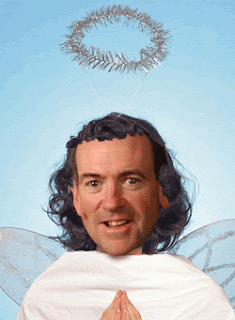

Why did Ed Hillary climb Mt. Everest? Sir John Hunt, who organized the successful 1953 expedition, said “it was the possibility of entering the unknown… to solve a problem which has long resisted the skill and persistence of others”. They were, in a word, curious. The death of Sir Edmund at age 88 reminded me of why I owned Sir John Hunt’s 1954 book: Everest and its conquest stimulated my curiosity and later my own interest in outdoor activities and the natural world. Now, as a teacher who is passionate about science, I am reminded of the power of one person to stimulate curiosity, a career, or even a theory. Another curious person was Don Hebert, aka Mr. Wizard, who enthralled families in the early days of television with his inquiry based, kid friendly demonstrations and demystifications of the physical and natural world. Like me, Dr. Frank Wilczek, MIT physicist, watched hundreds of Mr. Wizards. His thanks to the great stimulators of curiosity can be found on page 8 of the January, 2008 ‘Physics Today’. Curiosity may have killed a few cats, but think of all the lucky ones who got a meal!





